Great predecessors to be proud of as researchers and human beings: The intellectual heritage of Farkas Heller
_20231206144830_0.jpg)
Most of the works of the great predecessors in economics – Farkas Heller, Gyula Abay Neubauer, Ede Theiss – written between the two world wars are now available for research. What they have in common is that their themes are in sync with our age, and they are known and recognised by the international academic world, yet in Hungary they had been intellectual exiles since 1949. Some of them continued their academic work even in prison, we learned at the conference of the Institute of Economics and the University Library at the end of November.
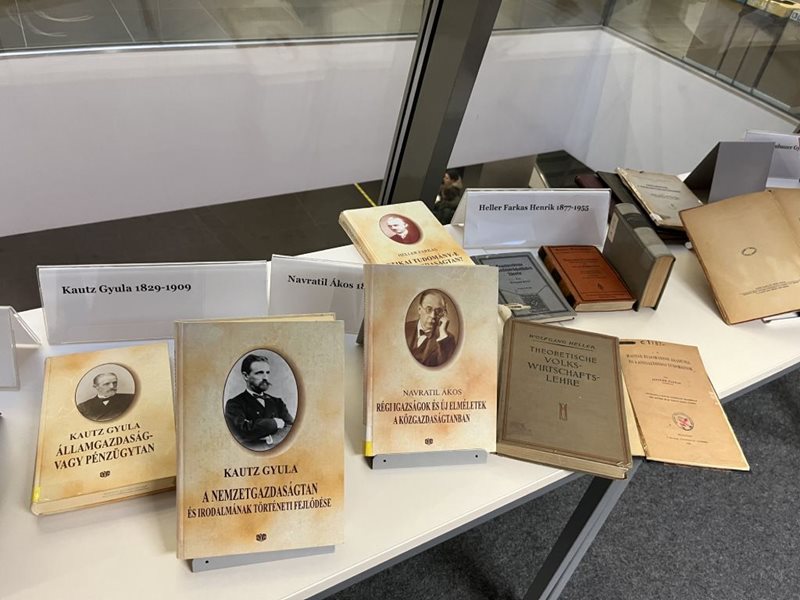
Document from 1767 in the Corvinus Hungarian Economic History Archive
At the conference entitled “The intellectual heritage of Farkas Heller – the connections of Hungarian economic thinking to international workshops and contemporary economic issues”, the audience was welcomed by Klára Major, Head of the Institute of Economics. She said that she became interested in the library of the former Department of the History of Economic Theories when she was appointed head of the institute. Thanks to the cooperation of colleagues from the Department and the Library, the collection of valuable old books, including the legacy of Farkas Heller’s library, had been transferred to the University Library.
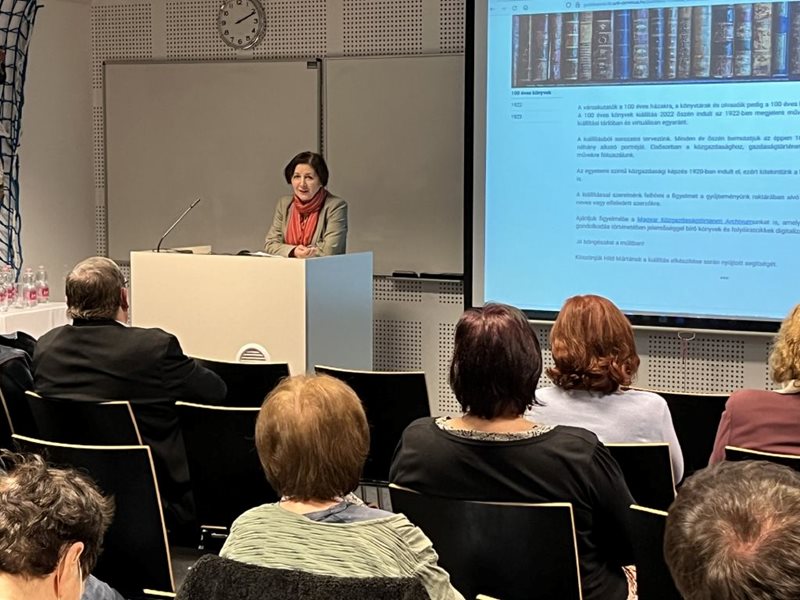
This became one of the foundations of the Corvinus Hungarian Economic History Archive. In the digital collection, you can browse valuable works by subject, year and author. There are searchable titles from 1767 and 1797, but it contains mostly 19th century and early 20th century publications, including works by Farkas Heller. Zsuzsanna Nagy, retired head of the Corvinus University Library said that in the mid-2010s they were confronted with the fact of valuable books existing outside the library’s collection at the University. They had been processed and are now available in the library, thanks to the head of the Institute of Economics and its researchers. She stressed that their mission was to collect and preserve works of historical value in Hungarian economics and to digitise them according to the requirements of the age. The archive currently contains 310 publications – 310 volumes and 180 articles.
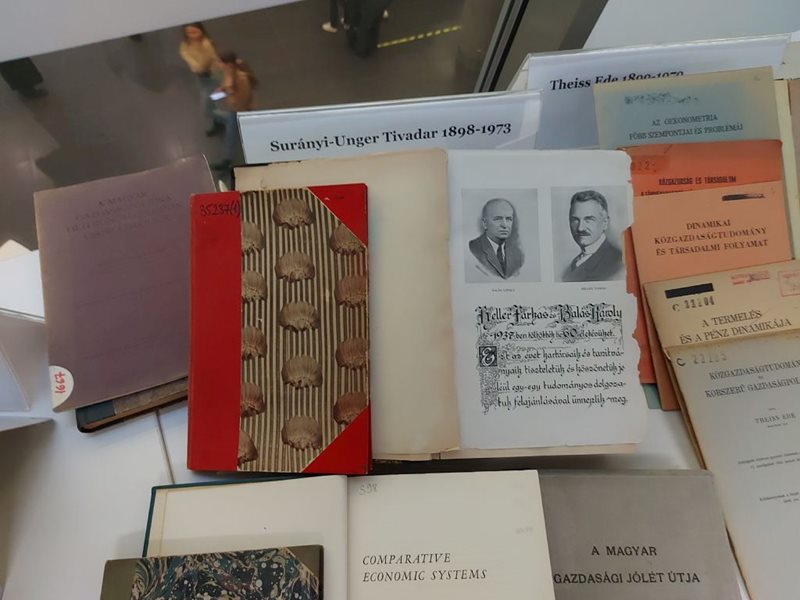
Hungarian Academy of Sciences, 1952: “Heller not worthy of an academic doctorate“
Béla Sipos, professor emeritus of the University of Pécs (PTE) said that he started to study Farkas Heller as a result of numerous coincidences, and he wrote a book about him before the regime change. (This was a brave act before the regime change, because Heller was a classical economist, not a Marxist.) Farkas Heller (like many economists at the time) studied law, and one of his most important works was published in 1904, discussing the theory of marginal utility. In 1914, Heller and three of his colleagues were appointed special public lecturers in the Department of Economic and Social Policy at the University of Technology, where the so-called Economics Department was established. But the First World War began and he was drafted, so it was only in 1917 that he was given the opportunity to teach regularly.
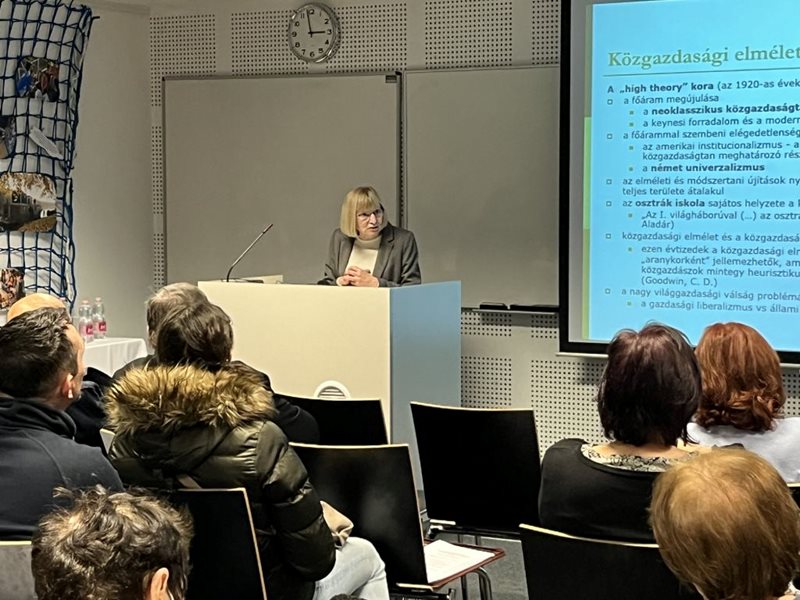
In 1920, the government of the time did not even consult the University of Technology when it established the new Faculty of Economics alongside the University of Budapest. Farkas Heller responded with his article “University autonomy”. During the Second World War, Heller and his fellow teachers protested (but in vain) against the transfer of the university’s upper grades to Germany. After 1945, he became rector of the University of Technology, where he taught until 1948, the year he retired. In 1949, the Hungarian Academy of Sciences expelled the internationally renowned scientist from its ranks.
In the meantime, his works, notably Theoretical Economics and The History of Economic Theory, brought international fame. His books were published in English, Finnish and Spanish, and were distributed from Australia to Montevideo. But at home in 1952, the Hungarian Academy of Sciences, notably Gábor Tolnai, the then Secretary of the Scientific Qualification Committee, replied to the scientist’s application, saying that on the basis of his work, no scientific degree could be awarded to him. They did not think he was worthy of an academic doctorate and suggested that he should get a PhD. However, a few years after Farkas Heller’s death in 1955, the MTA granted his wife’s request for an increase in her widow’s pension. Finally, the speaker drew attention to the volume he wrote on Farkas Heller in the Hungarian Scholars of the Past series, published in 1990. Interestingly, the editor of the series was the aforementioned Gábor Tolnai.
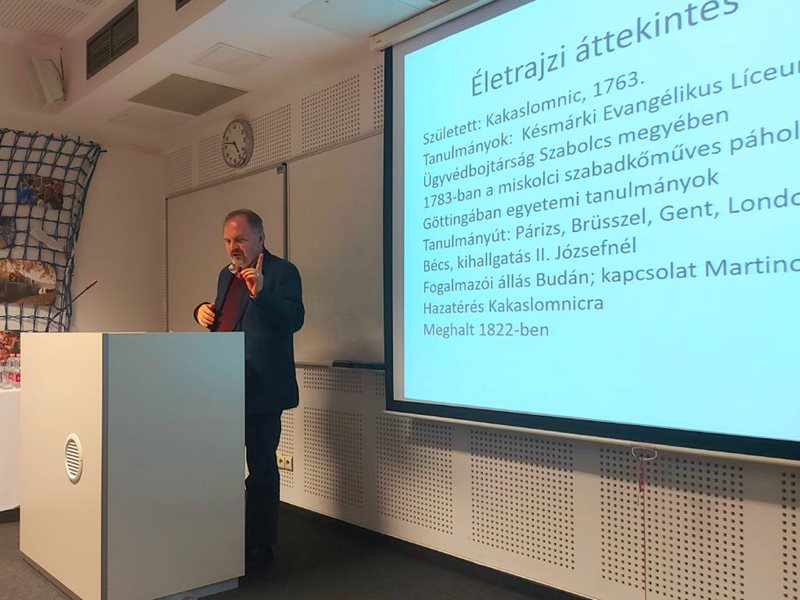
“International air in science is absolutely necessary“
Farkas Heller was an international standard theoretical economist and theoretical historian of the time, and his knowledge of the latest scientific findings was extensive, said Márta Hild, affiliated professor of Corvinus University in her lecture on the international recognition of Farkas Heller. The speaker recalled Heller’s belief in the importance of international relations. From the beginning of his career, Heller was a regular contributor to international, mainly German-language literature. Hild added that Heller’s most important works in German, which have been published in several editions, are mostly known, but they are rarely the subject of analyses of his work. Heller was a follower of the Austrian school, and at the same time a continuator of the Hungarian tradition of middle ground. His work began in 1904 (with The Theory of Marginal Utility published as a young economist) and continued until the Second World War, when major theoretical and methodological changes in economics took place and new trends challenged traditional economic theory. Heller’s work was positively received abroad. For example, his 1921 volume Die Entwicklung der Grundprobleme der volkswirtschaflichen Theorie was published in 1922 in The Economic Journal with a laudatory review. Friedrich Hayek, who later won the Nobel Prize for economics, wrote book reviews of his repeatedly published economic encyclopaedia, Nationalökonomie, in 1929 and 1934. Heller’s works discussed the theories of value, price, income distribution, money, foreign trade and the business cycle, and his articles on these topics can also be found in the German literature of the time.
Abay wrote in prison, from memory, and Berzeviczy became an “un-national” national economist
Sándor Oroszi, professor emeritus of the PTE and the Hungarian University of Agricultural and Life Sciences, spoke about Gyula Abay (Neubauer) in his lecture “The achievements and intellectual exile of a scientist”. His book “Critique of the Theory of Marginal Utility” was a seminal work, and the University of Pécs actually hired him because of his book,” said Oroszi. In addition to the theory of marginal utility, he also worked on credit policy issues, and the global economic crisis and its effects. Abay’s career, which was off to a good start, was interrupted by his involvement in the events of the 1956 revolution in Pécs (he was elected county co-chairman of the newly formed Independent Smallholders’ Party, among others), and he also wrote articles in the Pécs newspaper Szabad Dunántúl, disliked by the authorities. He was eventually sentenced to several years in prison for his activities in 1956. In prison, without any source material, he wrote a book from memory, Oeconomica Aeterna, published 40 years later by PTE. Abay Neubauer was also stripped of his academic membership, and was only rehabilitated at the 1989 General Assembly of the Hungarian Academy of Sciences. In memory of Abay, PTE established the Gyula Abay Neubauer Prize in 2002. As Oroszi said, Abay had some more controversial ideas too, but he had accurately foreseen many things. Interestingly, he expressed his views on the question of how much the Earth’s population will grow, which he anticipated surprisingly well. He strongly endorsed the Marshall Plan, and like Stiglitz, who believed that the oligarchy was seeking world domination, Abay said he visualised a future world government.
László Horváth, Associate Professor at the Corvinus Institute of Economics gave a lecture entitled The “un-national” national economist on Gergely Berzeviczy, who was born in 1763 in Kakaslomnik, studied in Western Europe and later joined the Masonic Lodge in Miskolc. In 1786 he took up a post as a draftsman in Buda, and even came into contact with Martinovics. His most important work in economic theory is De Oeconomia Publico-Politica, written in Latin in 1818-1819. He also proposed this language as an international language and a language that would unite the nationalities of Hungary, and got into a dispute with Kazinczy and the language renewal movement. After his death, Jenő Gaál published his work in Hungarian in 1902, writing of him as “the un-national national economist who became a Freemason during his journey”. This assessment has been greatly modified over time by some newly found documents, especially thanks to Éva H. Balázs. For Berzeviczy, money was only a medium of exchange, and he derived the concept of value from work and utility. In his opinion, common property, or state property was mismanaged. According to Horváth, Berzeviczy was of the opinion that the interest on public debt should be considered as the taxpayers’ liability – in effect the Ricardian equivalence, but Berzeviczy could not have known about this at the time.
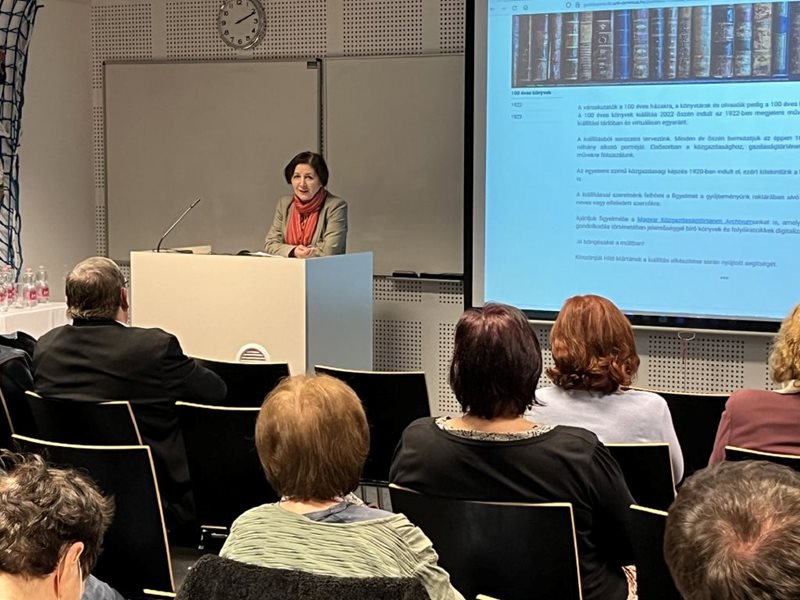
Theory versus empiricism; the labour market as a crisis indicator
At the end of the conference, Gergely Kőhegyi and Róbert Venyige, senior lecturers at the Corvinus Institute of Economics spoke about Hungary’s business cycles between the two world wars and business cycle research. Kőhegyi said that between the two world wars, Hungarian economics was influenced primarily by the German historical school, and the Austrian school. Heller was clearly attracted to the Austrian school, but he could not accept the radical positions of either school, which was especially evident in the so-called methodological debate between them. He himself did not contribute to the Anglo-Saxon and increasingly dominant American developments, but he followed the Anglo-Saxon literature, and probably inspired by him, many of his students became involved in shaping it. In the methodological debate, theory and empiricism were pitted against each other, and although the debate was originally in the German cultural sphere, it moved to the American continent with the Americanisation of economics, and continued between the old institutional and neoclassical schools. American economics was by no means as homogeneous then as it is now, nor is it true that the British neoclassical tradition dominated. Interestingly, due to the lack of graduate training, many people did their doctorates in Germany and took with them the approach of the German historical school. For this reason, many institutions of higher education – Harvard, for example – were “eclectic” universities, where researchers with different views got along nicely. The area, where theory and empiricism were particularly prominent, was the dynamic analysis of cycles. In Hungary, too, people increasingly turned to it, using Western teachings, such as Abay and Ede Theiss, who got his doctorate from Farkas Heller. Theiss was awarded a Rockefeller Foundation Fellowship to several American universities and published in leading journals.
Róbert Venyige spoke about business cycle research between the two world wars. The focus was on demand fluctuations, i.e. the cyclical movements of the economy, and shorter and longer fluctuations. As he said, the Treaty of Trianon and the economic shock caused by the disintegration of the Monarchy were decisive between the two world wars in Hungary. The Hungarian Institute of Economic Research was set up in 1928. This was before the Great Depression, but even then it was a time of recurring crises. There was no GDP calculation at that time, but other statistics were published and used to analyse economic cycles. Hungary was going through a severe agricultural crisis at the time, as the Great Depression hit agriculture worse than the industry. The capital strength of the largest creditors – the US and the UK – also declined dramatically. This period was characterised by high unemployment rates, but unlike modern economic cycles, the labour market changes did not follow cycles, but anticipated them.
During the break and at the end of the conference, participants had the opportunity to view an exhibition of valuable original works on economics from the library’s collection, selected from the authors discussed by the speakers.
Katalin Török